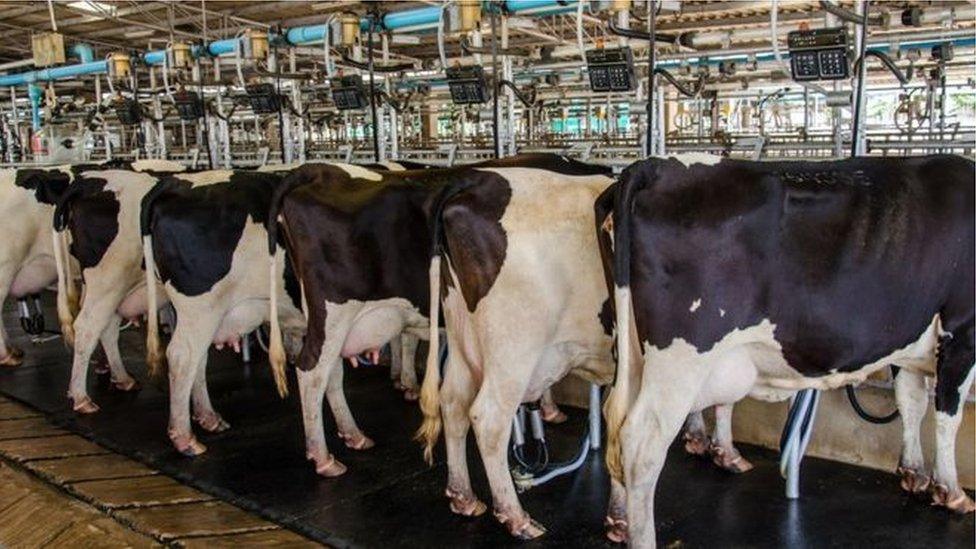No-deal Brexit would 'wipe out' profit in dairy sector
- Published
'The tariffs will wipe out total profitability' - Nick Whelan, Dale Farm chief executive
A leading dairy co-operative has warned that a no-deal Brexit would "wipe out" profitability in the dairy sector.
Nick Whelan, chief executive of Dale Farm, said steep EU export tariffs in the event of a no-deal would crush the sector.
Dale Farm is owned by 1,250 dairy farmers in Northern Ireland and Great Britain.
The remarks are the clearest warning yet of the impact of a no-deal Brexit for NI's key agri-food industry.
Dairying is one of the strongest planks of the agri-food economy, contributing around £1.5 billion a year in turnover, almost a quarter of the sector's total sales.
Mr Whelan said: "We would go from a situation where we've got a really strong industry to an industry that'll make no money.
"The tariffs on their own will wipe out total profitability in the industry and we all know that's not a sustainable situation."
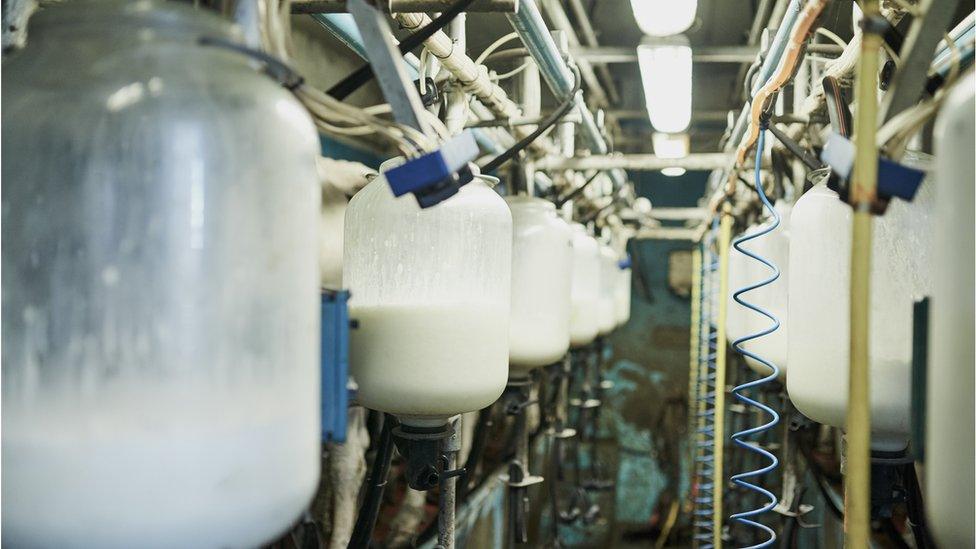
Mr Whelan believes the sector will be left in a "precarious" position in the event of a no-deal Brexit
Half the milk produced in Northern Ireland would be subject to tariffs of at least 40%, according to Mr Whelan, either as it crossed the border for processing or was sold as finished product like butter, cheese and yoghurts, to EU markets.
And he said if there were to be a no-deal the government would have to shore up dairy farm incomes with a price support mechanism that would need to last for at least a year while the future was mapped out.
'Survival mode'
He warned the sector would be left in a "precarious" position and even with government intervention, would be in "survival mode" and on "life support".
Mr Whelan said a huge amount of work was going on behind the scenes and he had made the case to the prime minister Boris Johnson and other senior government figures.
But as yet no-one had come to the dairy industry with solutions for what to do with the one-third of Northern Ireland milk that currently crosses the border for processing in the Republic of Ireland.
Mr Whelan added Northern Ireland has a great dairy industry that was "well-invested and globally competitive on an international scale".
But he said it would not be able to absorb the shock of a no-deal and that the sector felt it had been caught in a "Brexit crossfire".
- Published22 September 2019
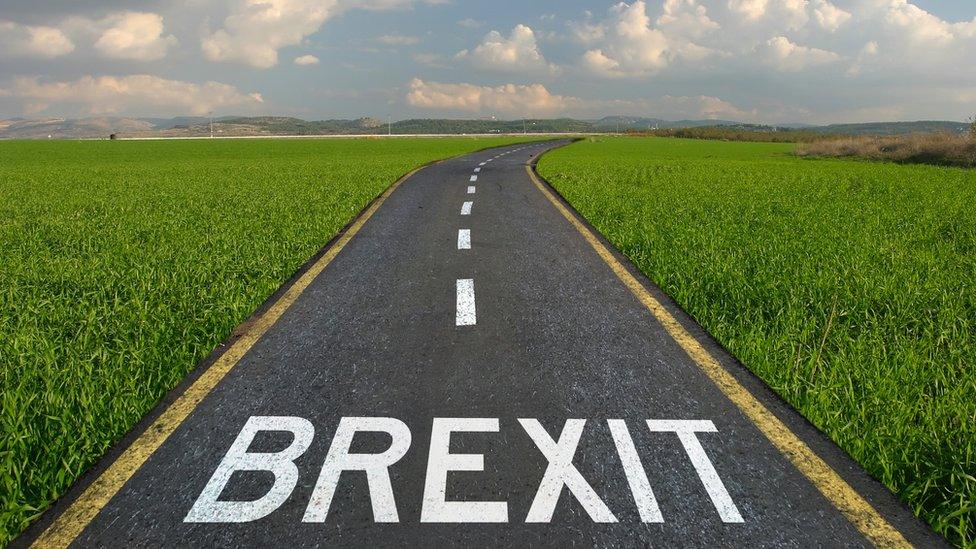
- Published5 September 2019
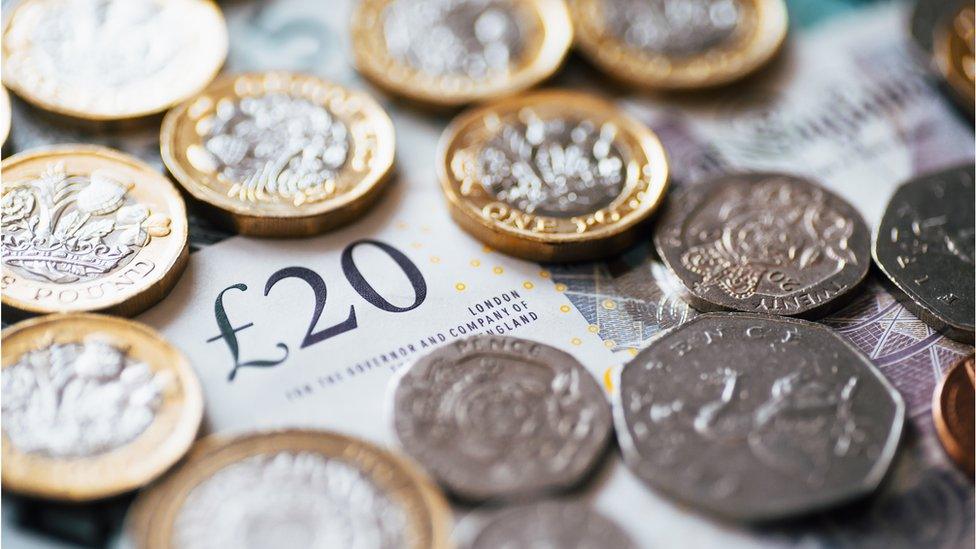
- Published18 September 2019
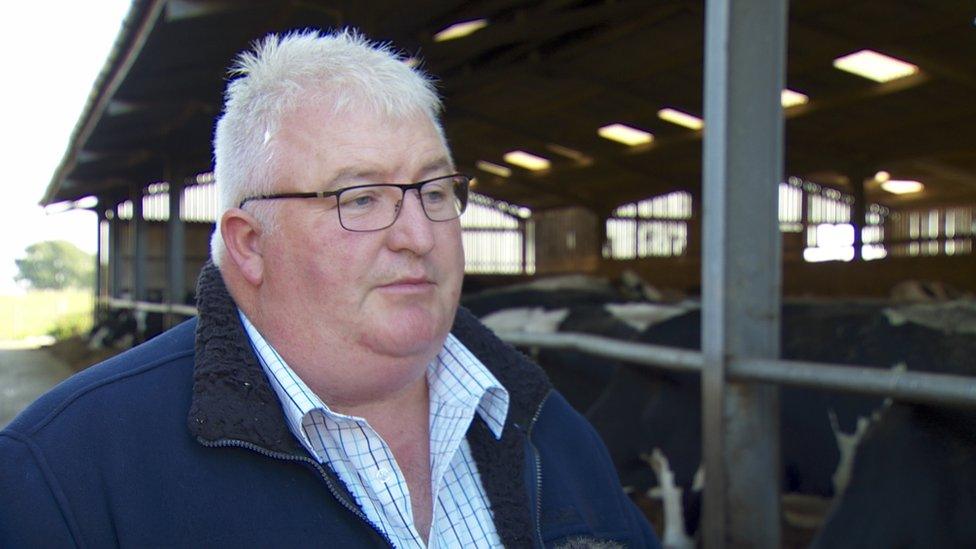
- Published15 September 2019
